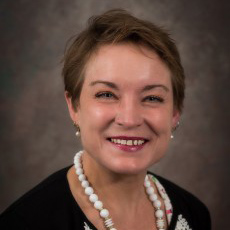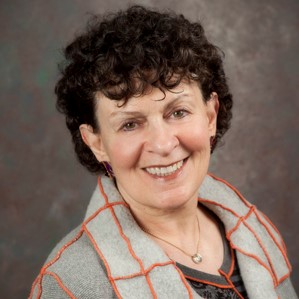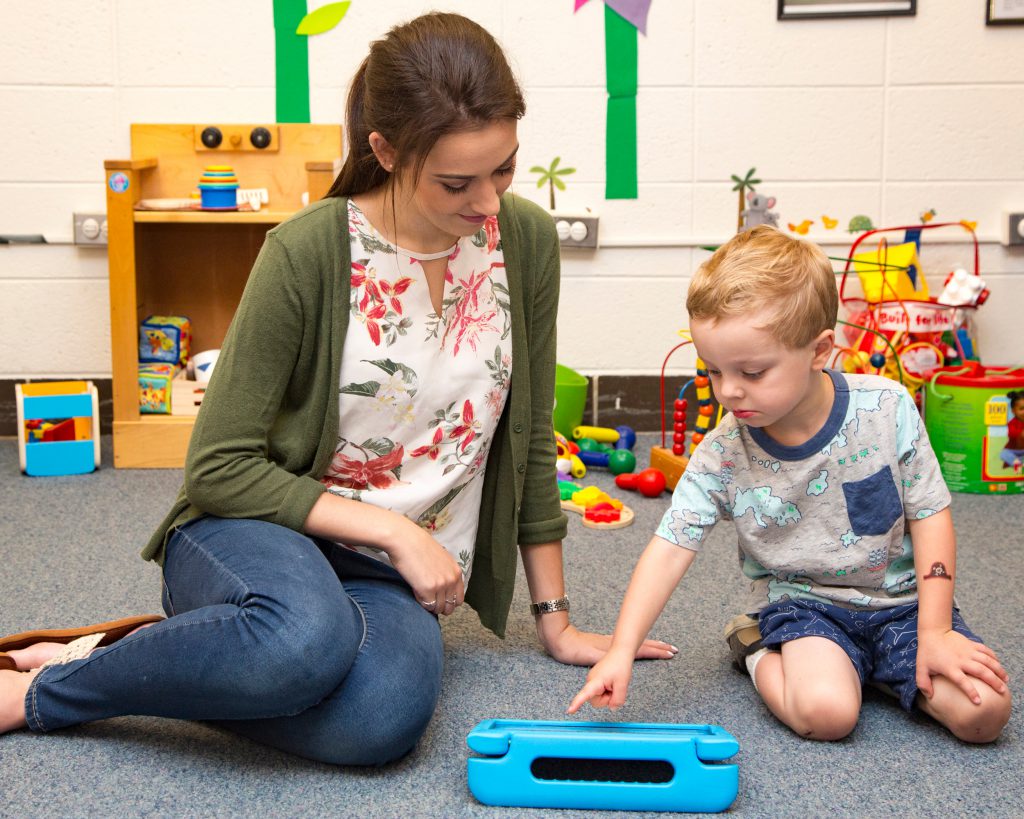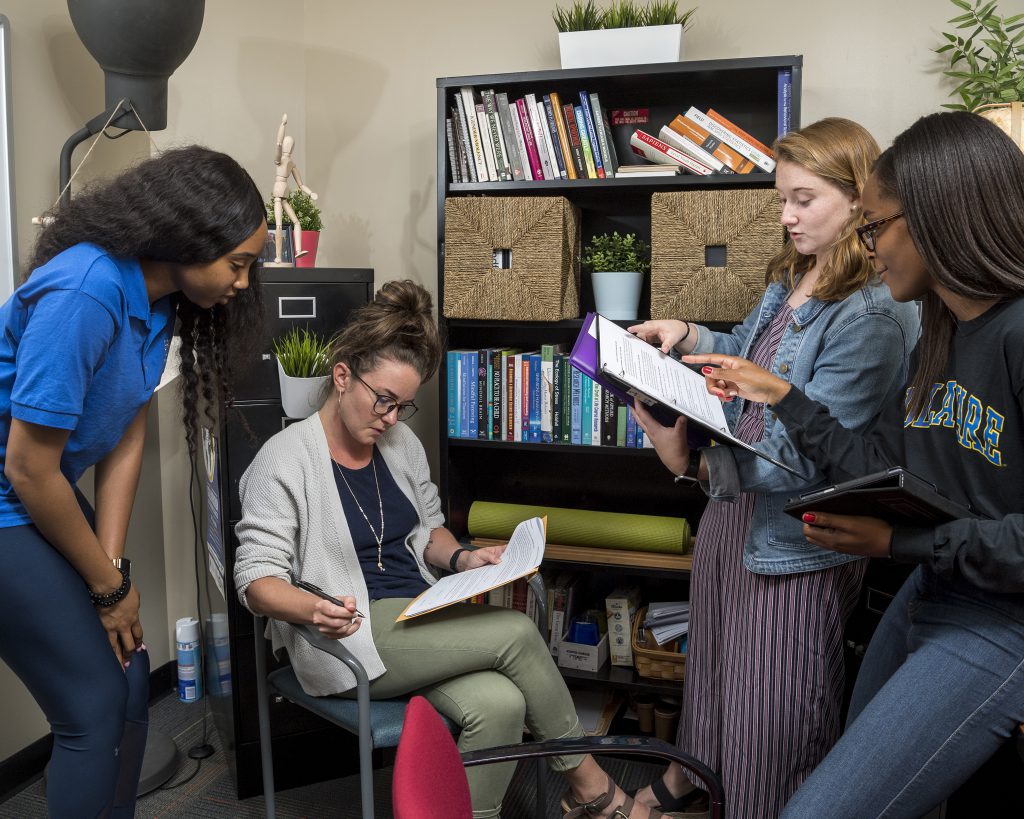Research
Early Childhood
From birth to age five, a typical child develops both physically and mentally more than during any other period of life. Children acquire language and reasoning, learn social norms, all while their bodies increase in size by a factor of ten. The social and learning environments that children experience during these early childhood years creates a lasting impact on their ability to succeed in school and life for many years to come.
At the University of Delaware’s College of Education and Human Development, our Early Childhood faculty have pioneered new scientific knowledge about infants and toddlers. In the Child’s Play, Learning & Development Lab, Roberta Golinkoff has uncovered evidence that infants are learning words well before they’re able to speak and noticing how their language talks about dynamic events taking place in the world. Research by Rena Hallam, Myae Han and Jason Hustedt has uncovered interventions that support early language and literacy development for at-risk children. The College is also home to numerous centers and initiatives–such as Delaware Institute for Excellence in Early Childhood, Early Learning Center and New Directions Early Head Start–which translate groundbreaking research into programs and curriculum that have a positive impact on the lives of hundreds of children every year.
Researchers
How can we help English language learners in kindergarten and first grade strengthen their reading skills? And, how does a child’s ability to read in his or her native language affect the child’s ability to read in English? With the support of two different Institute of Education Sciences research grants, Steve Amendum studies how we can support teachers to help improve early reading outcomes for students whose first language is not English. In a recent study, Amendum found that young children who had stronger Spanish emergent reading skills upon entering kindergarten experienced greater success over time when compared to their Spanish-speaking peers, who were more fluent in speaking English but less proficient in reading Spanish.
Nationally, studies have demonstrated that disciplinary approaches, such as suspension and expulsion, are overly applied to boys, children of color, and children with disabilities with devastating consequences. How can we prevent early childhood programs from using these approaches for children from birth to age 5? Martha Buell’s research in education and social policy centers on the quality of early care and education for infants and toddlers. Her most recent project, funded by the US Department of Health and Human Services, analyzes the alignment and cohesion between the federal Child Care and Development Fund policy guidance in relation to disciplinary approaches and state-level policy actors.
How do neurocognitive differences affect language and literacy development, especially in students with disabilities? Stephanie Del Tufo explores language and literacy across the lifespan, studying the developing brain in children, the mature adult brain, and the aging brain. Through a new study in the Journal of Learning Disabilities, Del Tufo provided neurocognitive evidence that learning words in isolation is more beneficial for children with decoding difficulties in lessons related to oral reading. By contrast, learning words in contexts is more beneficial for all readers in lessons related to semantic information. This work can help inform what works, for whom, and when in the design of literacy curricula.
How can colleges and universities better prepare future teachers for careers in early childhood education? Jennifer Gallo-Fox’s research seeks to better understand the ways that teachers learn and practice within their classroom contexts, especially with young children. She has researched developmentally appropriate early childhood curriculum and instruction, as well as early childhood science education. These programs interface through their connection to classroom practice in that they either work to support teacher development, or they examine interactions between teacher practice, context, and reform in order to inform teacher preparation.
How do babies learn to talk? Why is play so important in early childhood? How can we help parents engage their children in activities that inspire curiosity and active learning? Can young children profit from electronic media? These questions are central to Roberta Michnick Golinkoff’s research program, which focuses on language development, the effects of media on young children, the benefits of play, and preschoolers’ early spatial knowledge. Her most recent book, Becoming Brilliant: What Science Tells Us About Raising Successful Children, argues that the development of six skills allows children to thrive in a global workplace, experience personal fulfillment, and become concerned citizens. With scientific evidence and examples from school practices, Golinkoff and coauthor Kathy Hirsh-Pasek show how parents and educators can nurture collaboration, communication, critical thinking, innovation and confidence in children.
How can state and local governments better support family child care environments? Rena Hallam has served as lead investigator across multiple federally funded research projects examining early childhood transition, child assessment, and the intersection of child care quality and subsidized child care. Currently, she is Principal Investigator on a federally funded study of professional development approaches to support and enhance the quality of care in family child care settings, and is Co-Principal Investigator of the Starting At Home Project, which designed to study the impact of a parent-child intervention implemented by Early Head Start home visitors.
What are the best approaches for supporting the early language and literacy development of at-risk children? Can playing help children learn to read? Myae Han’s work is focused on answering these and other questions. She seeks to better understand the relationship between play and early language and literacy development, and co-developed early literacy interventions for at-risk and low-income preschool students in Head Start, which was supported by a $3.3 million grant from the U.S. Department of Education.
Infants and toddlers who are exposed to chronic stress may suffer lifelong consequences that contribute to mental health disorders, learning deficiencies and emotional instability. However, Jason Hustedt has found that the opposite is also true: that nurturing relationships can reverse damage caused by chronic stress. With support from a five-year, $2 million grant from the U.S. Department of Health and Human Services, Hustedt is researching how healthy, supportive relationships may be precisely what children need to overcome stress caused by poverty, abuse or neglect.
How do children learn and maintain mathematical knowledge? Nancy Jordan’s research is foundational in the field of early childhood and elementary math education. Her research, conducted in partnership with colleagues at UD and various other universities, established correlations of mathematical proficiency in young children, demonstrating that a child’s competency in kindergarten predicts achievement through at least third grade. Her highly-influential project, “Improving Understanding of Fractions among Students with Mathematical Learning Difficulties,” was funded by the U. S. Department of Education’s Institute of Education Sciences (IES) to the tune of $9.9 million. In total, Jordan’s research has attracted nearly $17 million in external grant funding.
How can build meaningful connections between educational theory and practice? As a clinical professor in Human Development and Family Sciences, Rosalyn Washington’s areas of interest include teacher preparation, educational policy relating to early childhood education academic redshirting and mentoring and other-mothering of graduate students. She teaches courses related to literacy, inclusion, professionalism and engaging diverse families.
In what ways does the quality of early care and education (ECE) programs promote childhood development? Anamarie Whitaker is interested in understanding how ECE policies at the local, state, and federal level influence ECE programs, classroom practices and quality, and children’s school readiness. Her recent research examines the effect of preschool curricula on teachers’ instructional practices, such as the amount, type, and quality of academic instruction provided, and children’s academic and social emotional development.
What steps can teacher education programs take now to train the next generation of teachers to be culturally responsive? Since 2015, Lynn Worden and co-researchers Rosalie Rolon-Dow and Jill Flynn have been developing a curriculum for teacher candidates at the University of Delaware with the goal of developing racial literacy. Their recent research offers guidance on helping students to understand that race is a social construct and reflect on ways that the opportunity gap created by racist structures impacts education, special education, discipline in schools and resources for schools.
Funded Research & Engagement
Starting at Home: Incorporating a parent-child interaction intervention into Early Head Start home visiting
Co-PIs: Myae Han, Rena Hallam, Jason Hustedt, Jennifer Vu
Administration for Children and Families, U.S. Department of Health and Human Services
Stars Plus; Promoting Quality Improvement for Family Child Care Providers in QRIS using a Community of Practice Model
Co-PIs: Martha Buell, Myae Han, Rena Hallam
Office of Planning, Research, and Evaluation, U.S. Department of Health and Human Services
Early Academic Achievement and Intervention Response: Role of Executive Function
Co-PIs: Stephanie Del Tufo, L. Cutting
National Institutes of Health
In the News
During the holiday season, parents and caregivers are bombarded with flashy advertisements for the “best” or most “educational” toys for …
In celebration of National Children’s Book Week from November 3 to 10, University of Delaware’s College of Education and Human …
When Diana Mercado applied to the University of Delaware’s Let’s Grow Outside! initiative, she saw a great opportunity for the …
Wading in the creek behind University of Delaware’s The College School, elementary students laughed and cheered as they met a challenge …
Research Centers & Labs
Since 1974, the Child’s Play, Learning and Development Lab has been exploring how children learn and grow, from how children develop language and spatial skills to how play can help scaffold learning.
DIEEC works to improve the quality of early care and education experiences for young children and their families, with an emphasis on high-risk children. through the design, development, and testing of model programs.
The mission of the Early Learning Center is to provide a model of quality early care and education services for children and their families which supports the academic and research programs of the University of Delaware.
The University of Delaware Lab School engages in curriculum development, exploratory studies and serves as research site for university faculty and students. The school provides a model of exemplary practice and research-based professional development for practitioners serving children and their families.
New Directions Early Head Start (NDEHS) provides pregnant women, infants, toddlers and their families with quality care and family services. They support families and their very young children with the goal to promote children’s success and families’ self-sufficiency through community collaboration and partnerships.
Graduate Programs
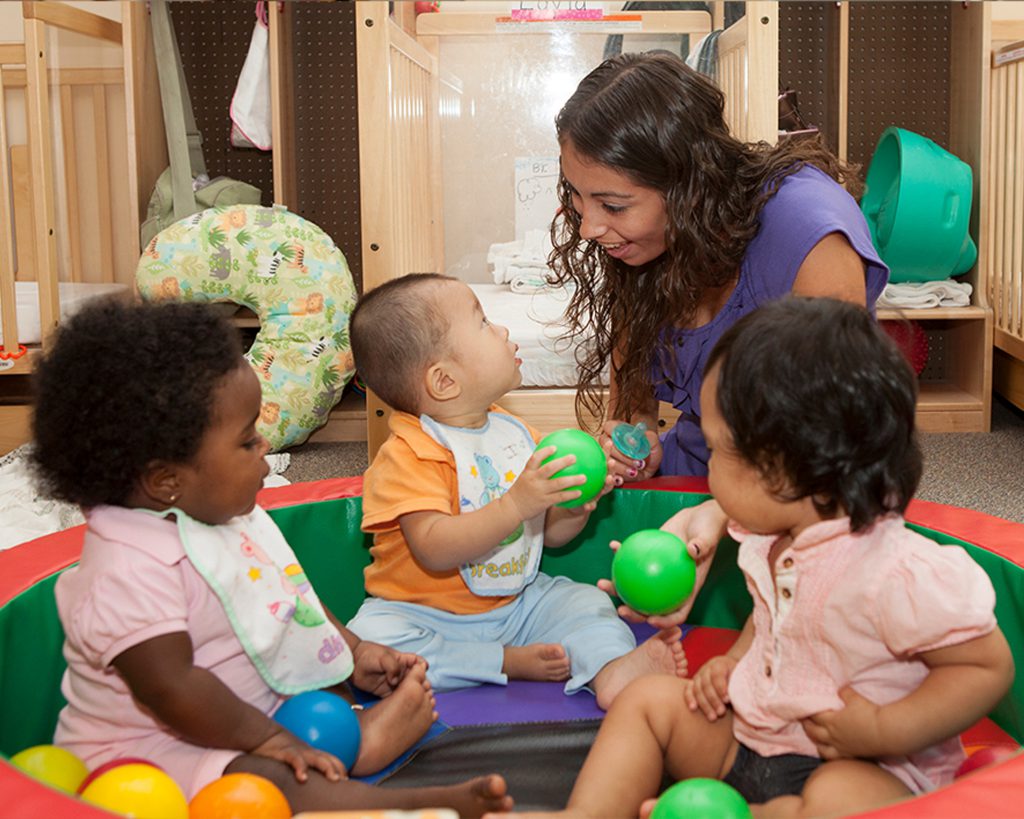
As of Fall 2022, this program is on moratorium and is no longer accepting new students.





